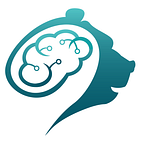Can AI Spot Liars?
“You can’t hide your lyin’ eyes
And your smile is a thin disguise
I thought by now you’d realize
There ain’t no way to hide your lyin’ eyes”
- Lyrics from Lyin’ Eyes by the Eagles
If someone looks up and to the left while they say something, they’re lying to you. If they’re tugging at their sleeves, they’re not being truthful. A stutter? Don’t believe a word out of their mouth!
How many of these adages about detecting deceit have you heard before? From folk psychology to polygraph tests to truth serums, humans love the idea of a lie detector. The truth, as renowned psychologist and recognized authority on lying Paul Ekman points out, is that there is no Pinnochio nose that someone is definitely lying that applies to all people. People can have individual tells that can be learned, and certain physical changes, when viewed holistically, can be a good guideline, but a perfect lie-detecting system is yet to exist.
That being said, some people are really good at telling when someone’s lying. You’ve probably encountered some — the player at the poker table who always seems to know when someone’s bluffing, or your second-grade teacher who could somehow always tell that your dog didn’t actually eat your homework. Machines have come close as well: the polygraph test…
